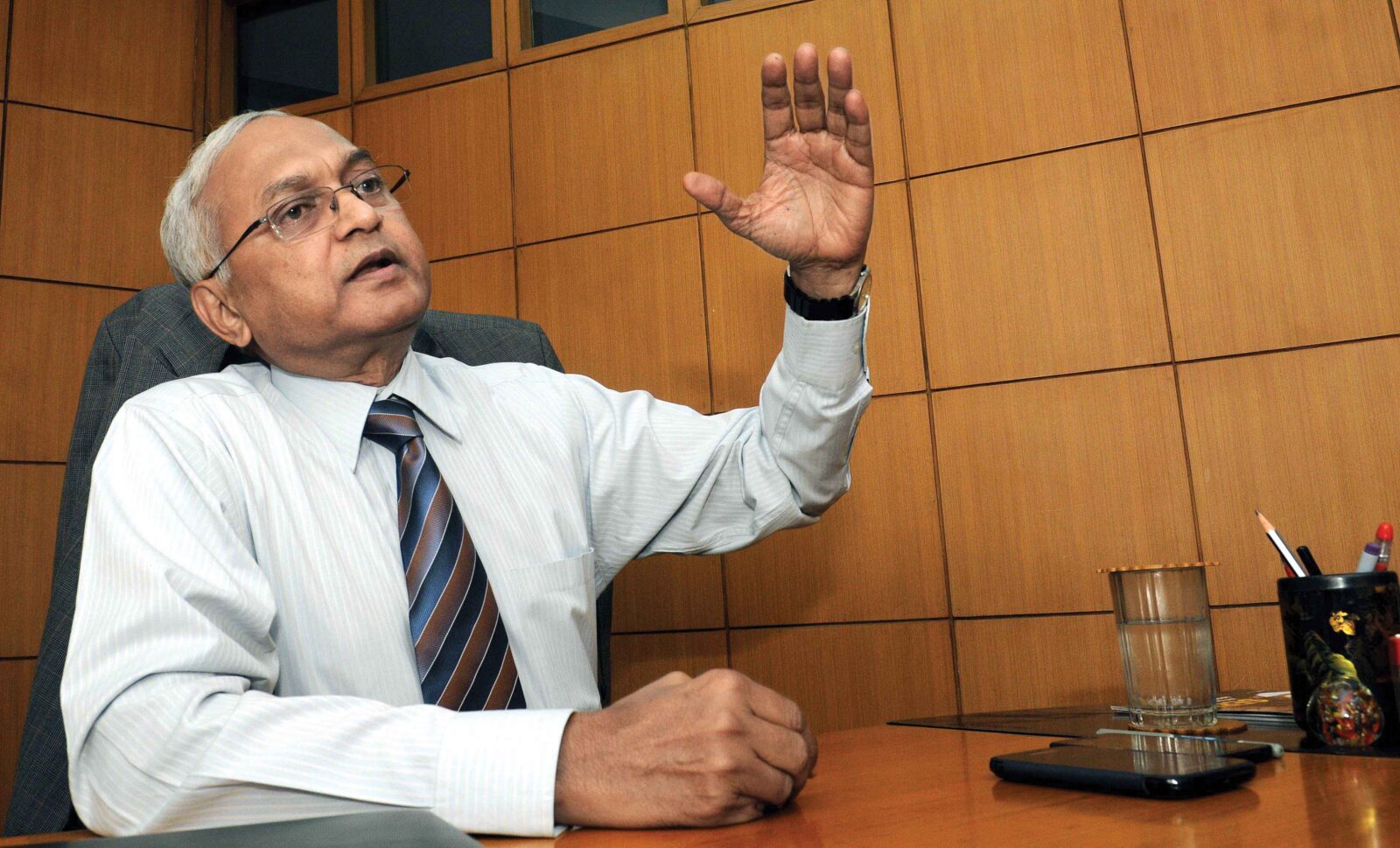THIS is the most incredible story of KK Jaiswal, an honest and straight-forward bureaucrat, who was so desperate without official accommodation that he decided to leave his home State and accept the post of Under Secretary in the Government of India because along with it came a one-room temporary accommodation in the transit hostel.
“It was becoming impossible to survive in Lucknow without accommodation. So I decided to accept the offer because I was being given accommodation,” he says.
Jaiswal was just 28 and on top of the world when he got his first charge as District Magistrate at Uttarkashi. “I am more than satisfied … I consider it a privilege to have been given the opportunity to deal with matters of such great importance so early in my life,” he says.
It was not a conscious decision on his part to join the IAS, even though the family had a tradition of government service. His father was in the judicial service. After completing MSc at the age of 18, he became a lecturer at Banaras Hindu University and started taking interest in subjects like history. There was no coaching. He did not even expect to qualify but cleared the lower papers. Due to a death in the family, he could not appear for the higher papers but was still selected for the Railways Accounts service. He cleared the IAS the next year and joined the 1968 batch in the UP cadre.
However, he soon discovered that life is not a bed of roses every rose stem has many thorns attached to it.
As the DM in Uttarkashi, Jaiswal managed to offend a minister who was contesting from there. The minister wanted to misuse the government machinery and logistics in the elections. He was furious at being refused, so Jaiswal was given marching orders and asked to leave within 24 hours.
Jaiswal happily went to Varanasi but just six months later he was shunted out to Haldwani to set up the office of the Regional Food Controller. Six months later, he was again transferred to Lucknow… and not given a house.
“All I wanted was a one-room official accommodation but it was not given… I had made it clear to my wife to be prepared to pack up and move to another location at short notice…My wife took it in her stride and she never complained,” he says.
In 36 years of service, Jaiswal was a witness to many changes in all walks of life, including in the IAS itself. “At that time the administration commanded a certain respect. The political executive was also deferential but later the relationship got soured and there was some stress. I was fortunate in the sense that I never had any serious problem in my life. Though many of my colleagues had to suffer,” he says.
“I always accepted the fact that we were to play the role of advisers and the main decision rested with the political executive. I had absolutely no problems in accepting the equation that they were the people’s representatives and our job was to assist them. But at the same time I was also very clear in my mind that I would be failing in my duty if I did not advise them to the best of my ability. I never tried to anticipate their wish and formulate my advice as per their wishes,” recollects Jaiswal.
In the mid-1980s, Narayan Dutt Tiwari, who was then the Industries Minister, was virtually airlifted and dropped at Lucknow as the Chief Minister of UP. He had only about six months or so before the Assembly elections. The Congress was fighting for survival in the State. Tiwari was under the impression that by keeping government servants who were opinion leaders in their areas on his side, he would be able to influence the voters. So he started granting extensions to all government servants who were about to retire.
Jaiswal, who was then Secretary, Rural Development, started receiving files with orders from the CM to grant an extension. He would record his comments and send the file back. As a result, the files went back and forth 2-3 times. “In 95 per cent of the cases, the CM eventually relented but in some cases he would record, ‘I agree with the Secretary’, however as an exception this needs to be done… He never took it ill. It was considered to be a legitimate function of the Secretary. It goes to his credit that such defiance of the Secretary was not held against me but the next coalition government under Mulayam Singh Yadav as CM was a different ball game altogether. They just could not accept that a mere Secretary would question the orders of the Chief Minister,” he says.
THOUGH there was never any direct confrontation with the Chief Minister, Jaiswal continued to ruffle the feathers of his minister. “Within a space of 2-3 months, a dossier had been compiled on the orders which I had defied. I got a note from my administrative superior, the Agriculture Commissioner, saying that the minister has taken very strong exception to persistent defiance of orders… and she has recommended your suspension. I was asked to give an explanation,” he says.
“I was aghast… I went to the Agriculture Protection Commissioner and told him that he was not doing his job. He could see the impropriety of the minister’s orders, the least he was expected to do was to protect his officer and tell the minister that she was exceeding her powers and she had no right to demand compliance with orders that were blatantly illegal. For three days, I shut myself in my office, delved into all the files and prepared a detailed explanation. Eventually, my position was vindicated in every single matter. The minister had to eat humble pie but I was promptly transferred and sent to the dog house on an important job,” he says.
“Of course I would revisit some of my actions because now I know in hindsight that perhaps I could have acted in a different manner but then I would be happy to be placed in the same situation again. I don’t think I will be making any sacrifice in going through this again. The satisfaction of being able to do something far outweighs the inconvenience that one had to face,” he adds. “A job well done has its own rewards. Satisfaction has to come from within… it does not really matter what post you held or how long you stayed at a particular post,” he philosophises.
– Neeraj Mahajan












































